Moving into Downing Street: life behind the iconic black door
- Published
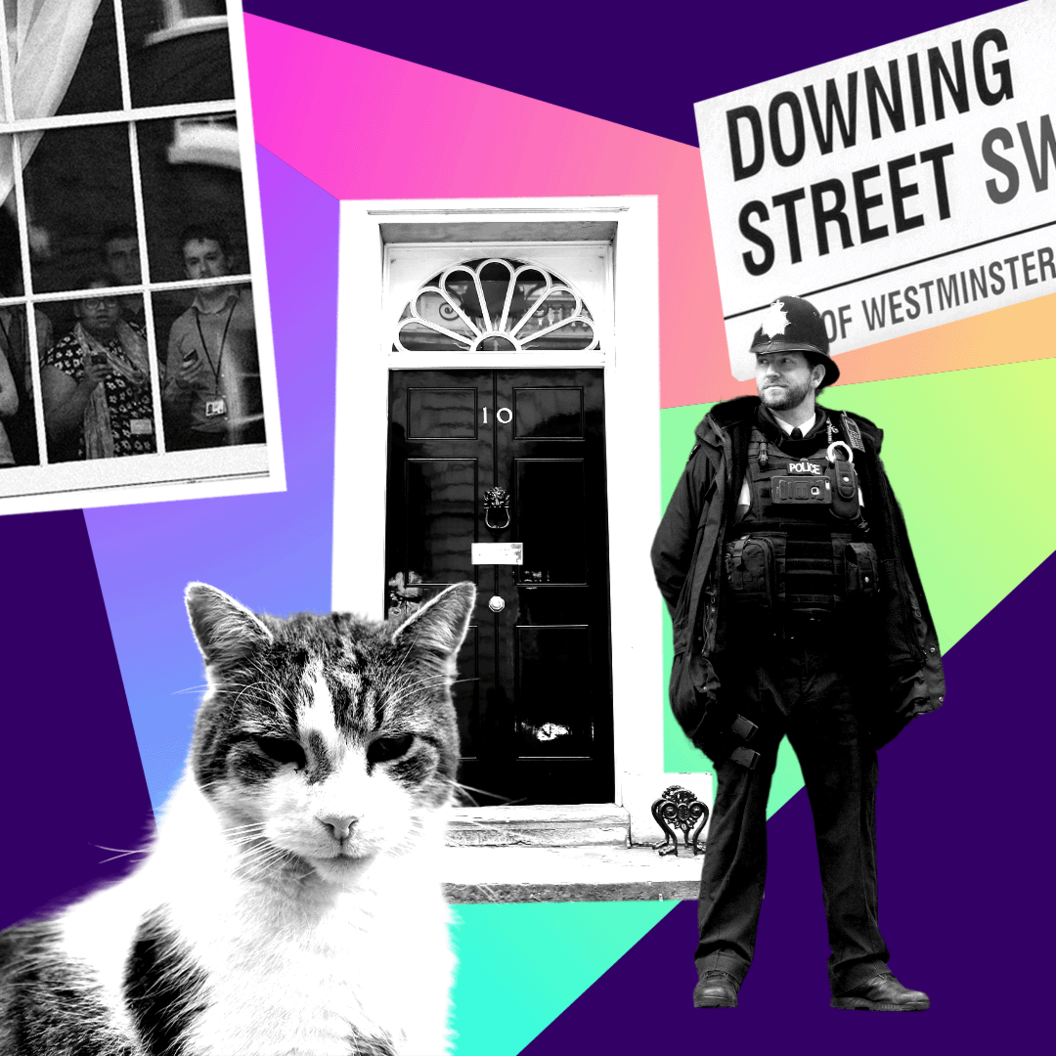
Out with the old, in with the new.
Nothing represents the rapid, ruthless business of politics like removal vans at Downing Street.
Settling a new prime minister - staff, family, pets and paraphernalia - into the famous residence, however, is a complex feat.
With the Starmers set to move in after Labour’s landslide victory - here’s their relocation to Downing Street unpacked.
Sunaks out, Starmers in
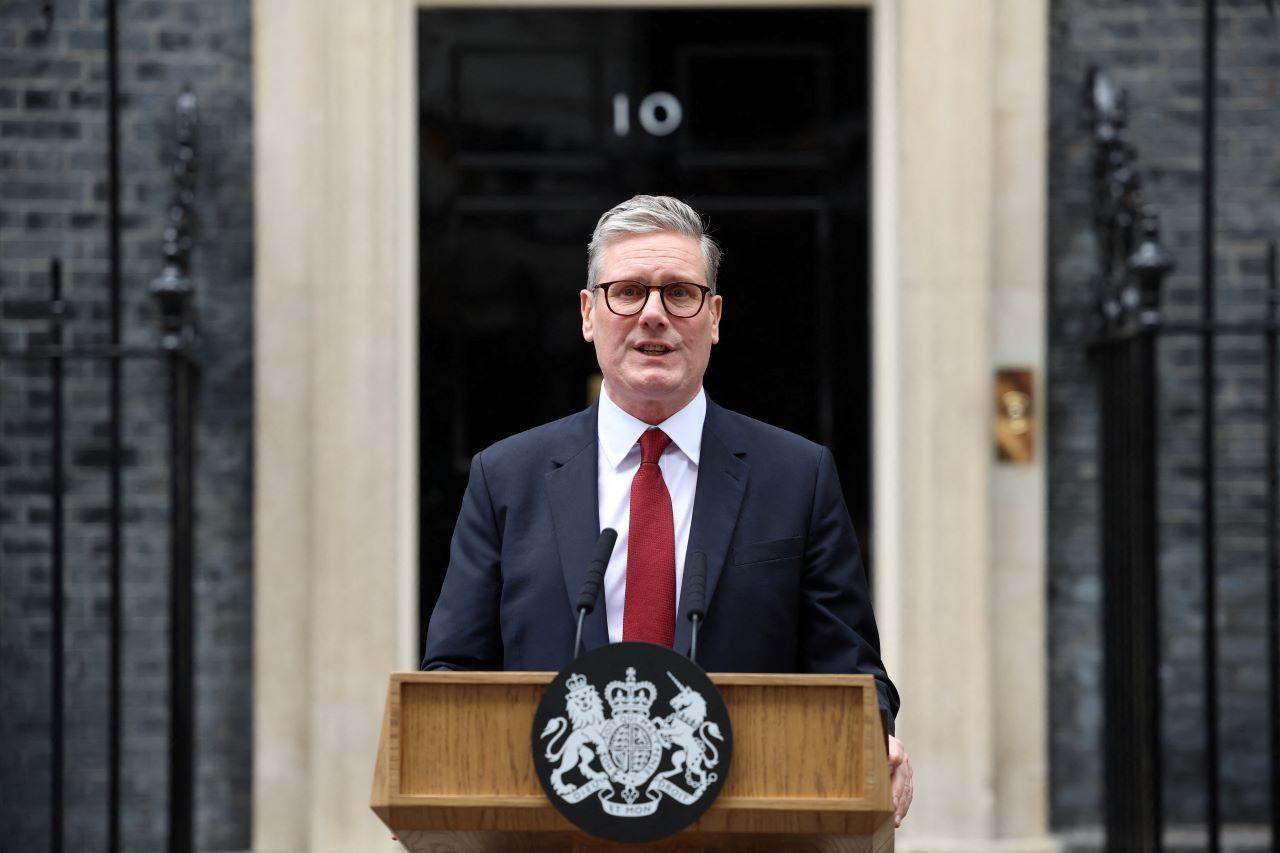
Prime Minister Keir Starmer speaking outside No 10 after the 2024 election
Former Prime Minister Rishi Sunak vacated 10 Downing Street on Friday 5 July after Labour won a landslide victory in the general election.
Shortly after, new PM Sir Keir Starmer and wife Victoria Starmer arrived on the steps of No 10.
The iconic street became their new office and home. But, the family - including the couple's two children - didn't unpack their bags straight away.
“We will take a bit more time with the kids. We haven’t moved in yet because I didn’t want them left on their own while the two of us were away this week, so we’ll just take a bit more time on that,” said the prime minister, who has been in Washington this week for a NATO summit.
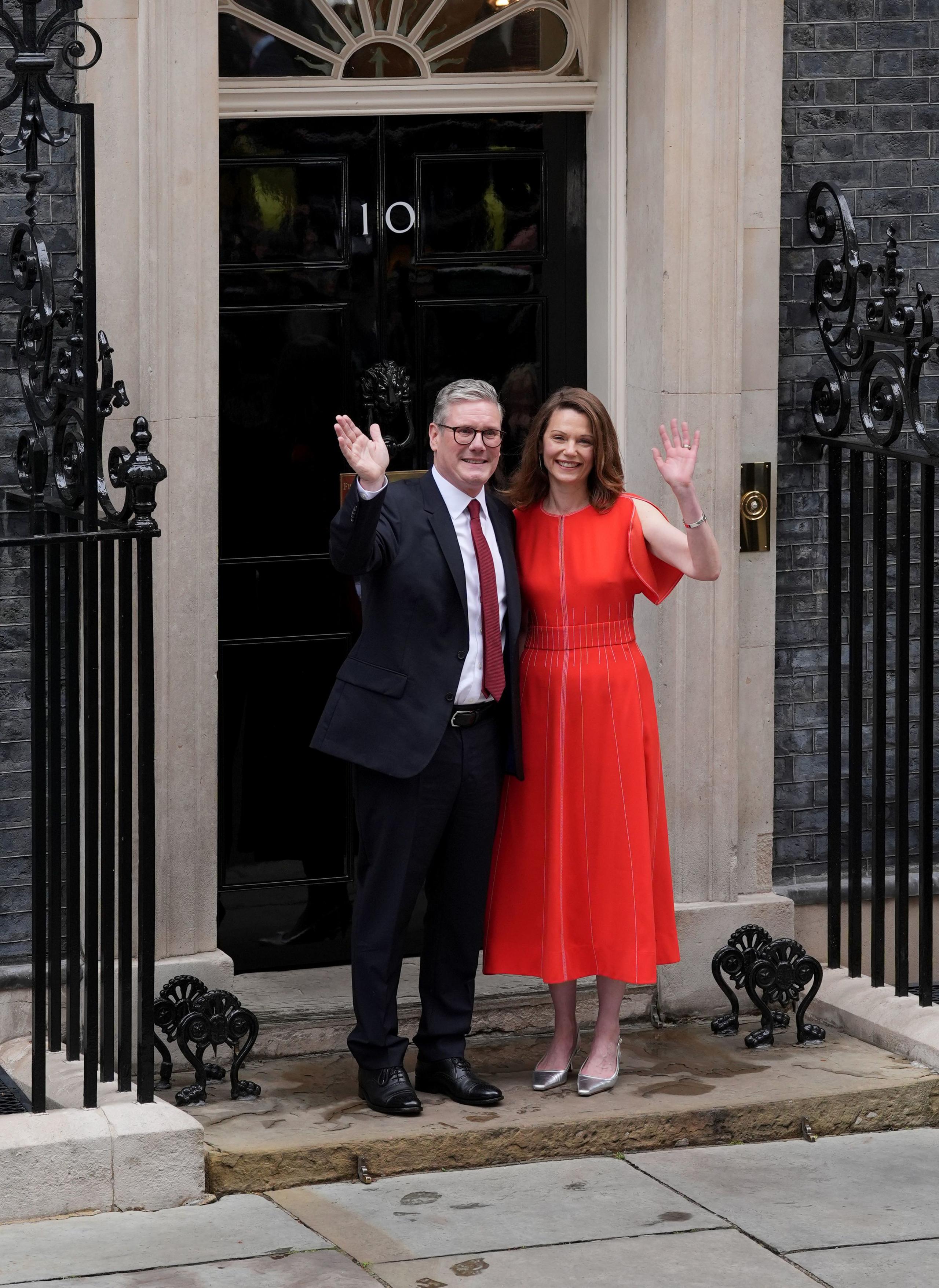
Prime Minister Keir Starmer and his wife Victoria Starmer on the steps of No 10 Downing Street on Friday 5 July
Staying at No 10 or No 11?
The prime minister officially taking up residence at No 10 is a historic moment for a new government.
Yet, the Starmers are expected to live in the more spacious four-bedroomed flat at No 11.
This follows a trend first set by the Blairs in 1997, who lived at No 11, and repeated by other prime ministers including Boris Johnson and David Cameron.
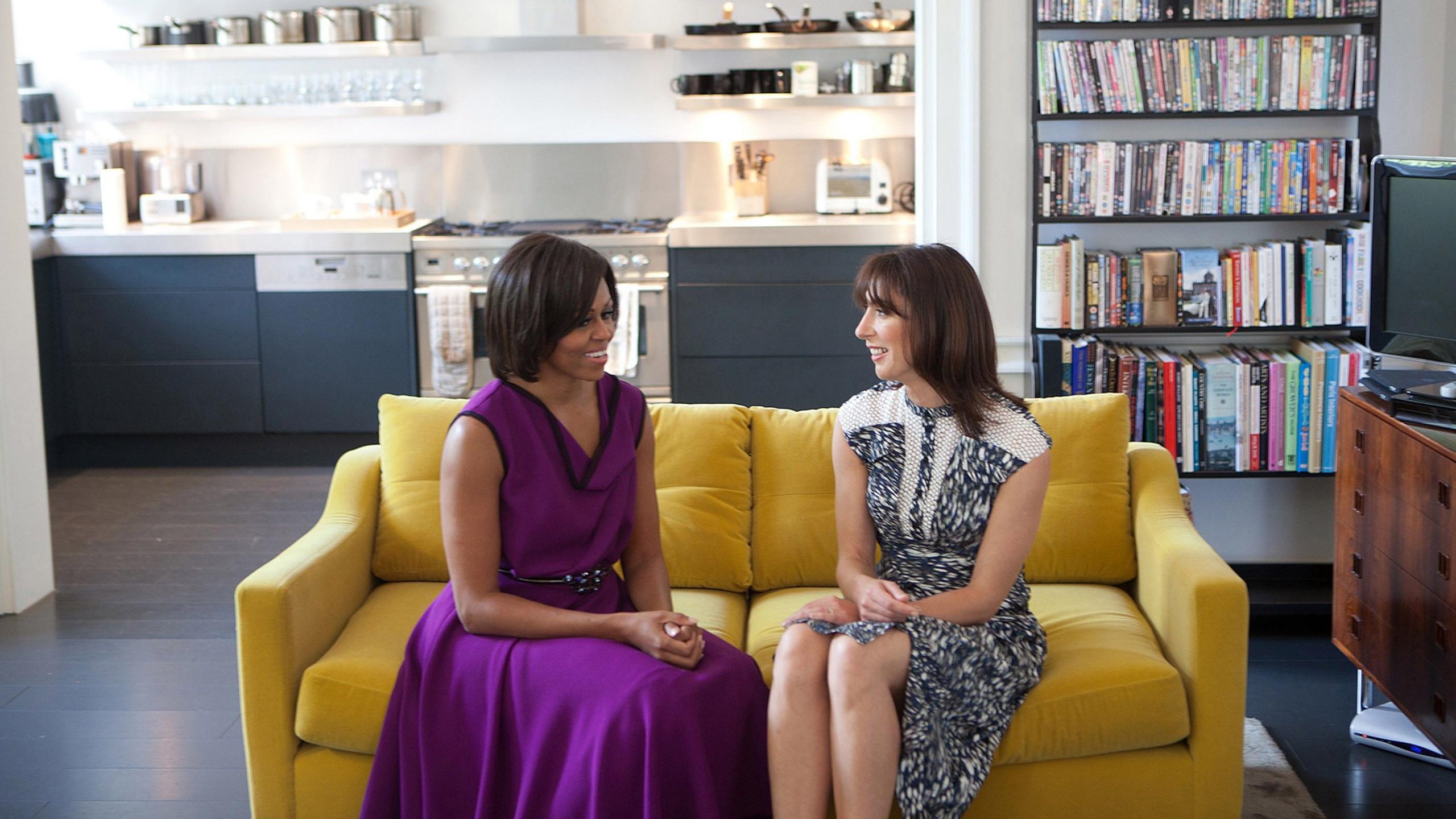
Samantha Cameron sitting with Michelle Obama at Downing Street in 2011
Messages from one resident to another
The Starmer children, unlike some of former prime ministers, did not feature in the photograph of a new PM on the Downing Street steps.
That's because the Starmers have chosen to keep their 16-year-old son and 13-year-old daughter out of the public eye.
The teenagers did, however, receive a warm welcome from some of Downing Street's previous young residents, the children of former Conservative chancellor Jeremy Hunt.
“Jeremy Hunt's children left notes for our children coming into the Number 11 flat,” the prime minister said.
“It was very nice. I think that was really sweet and thoughtful of them to do that because for children this is very impactful. They have been through it. They are slightly different ages but for them to be thoughtful enough to leave a note is very special. Our children were very pleased to get those notes."
The former chancellor was pictured leaving Downing Street with his wife, three children and family dog just hours after the Conservatives lost the general election.
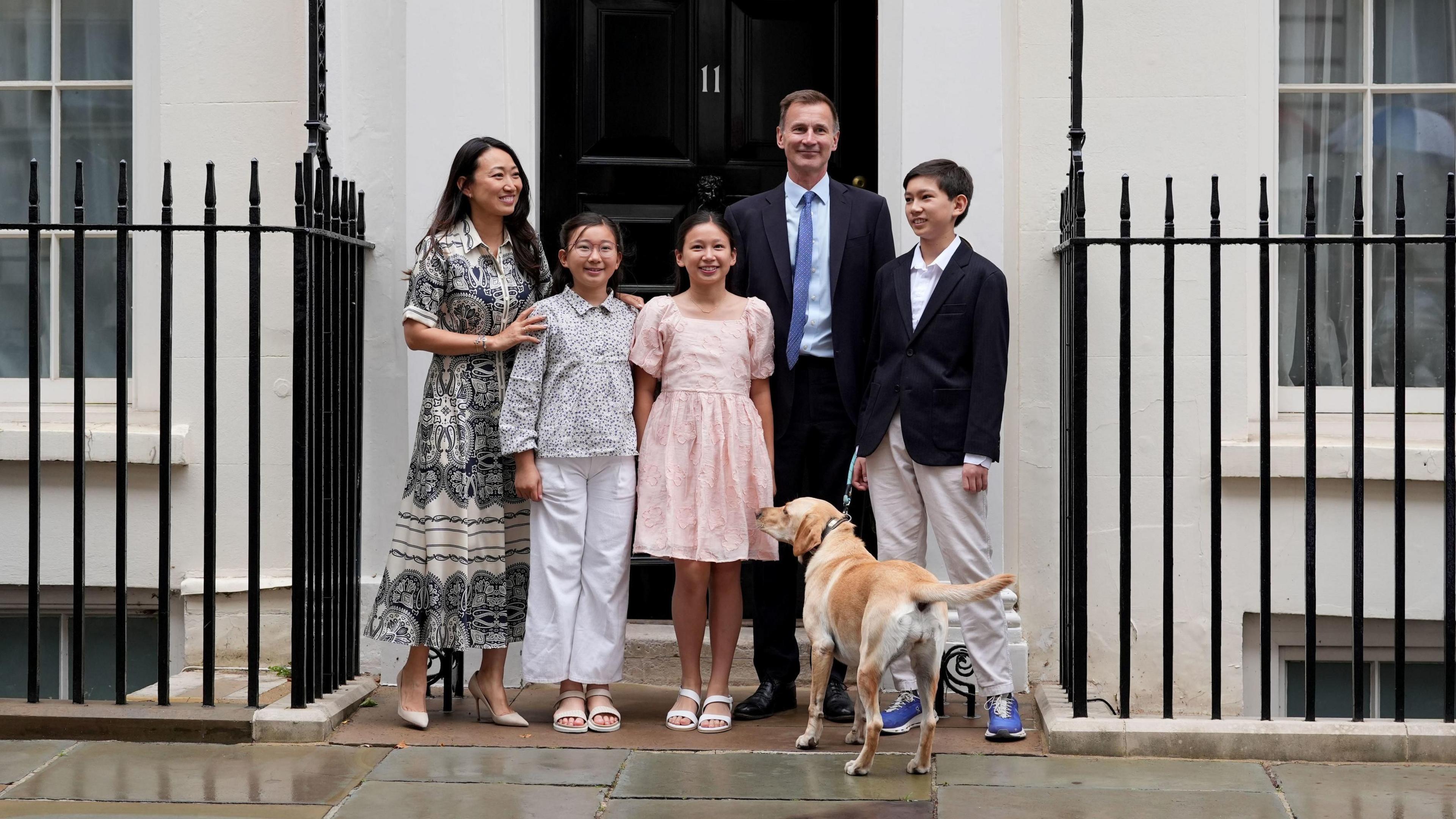
Former chancellor Jeremy Hunt with his wife Lucia and their children Jack, Anna and Eleanor
No change in Downing Street’s chief mouser
A permanent resident, unfussed by the rise and fall of governments, is Larry the cat who was adopted and brought to Downing Street in 2011 for his mousing skills.
He may have another pair of paws to contend with if JoJo, the Starmer’s family cat, moves in.
Plus, the new PM hinted that his family might bring a dog along too. Starmer told Times Radio his children had “been on a campaign to get a dog for a number of years” and that “German shepherd is the current favourite”.
Boxes, boxes, boxes
“It’s their home and it’s quite a big home,” said Stephen Morris, managing director of the removal firm which packed the possessions of the Blairs into 2,000 boxes when they left Downing Street in 2007.
“You don’t let people know what it is you’re moving,” Morris said. “Because you hear and see things that a newspaper would like!”
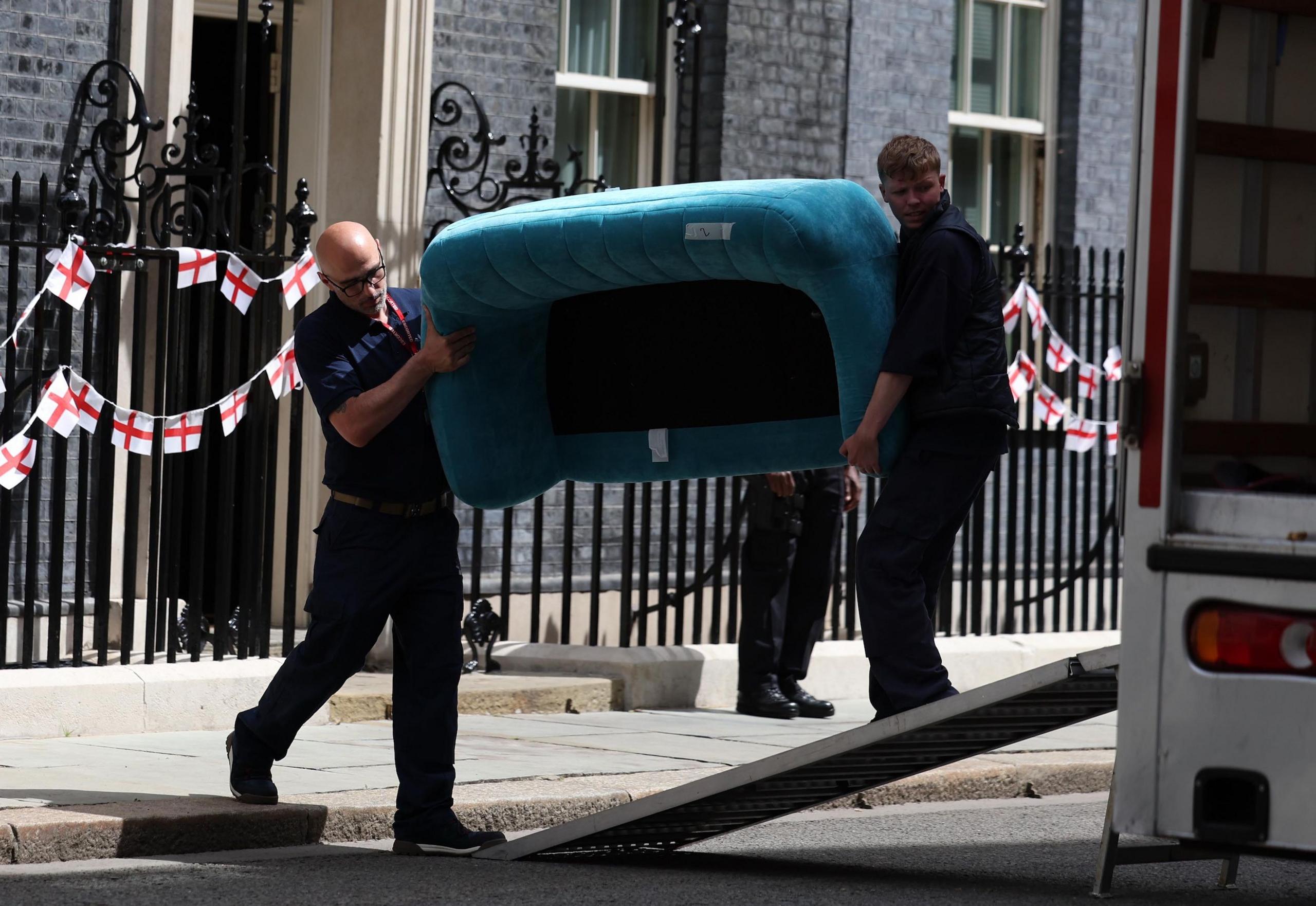
Men were seen moving furniture in Downing Street on 8 July, after Starmer's election win and England's victory in the Euro 2024 quarter final.
Politics can move fast, and so must removals.
Morris recalls receiving a phone call in 2010 the evening Prime Minister Gordon Brown resigned, asking his team to be ready to start moving the next day.
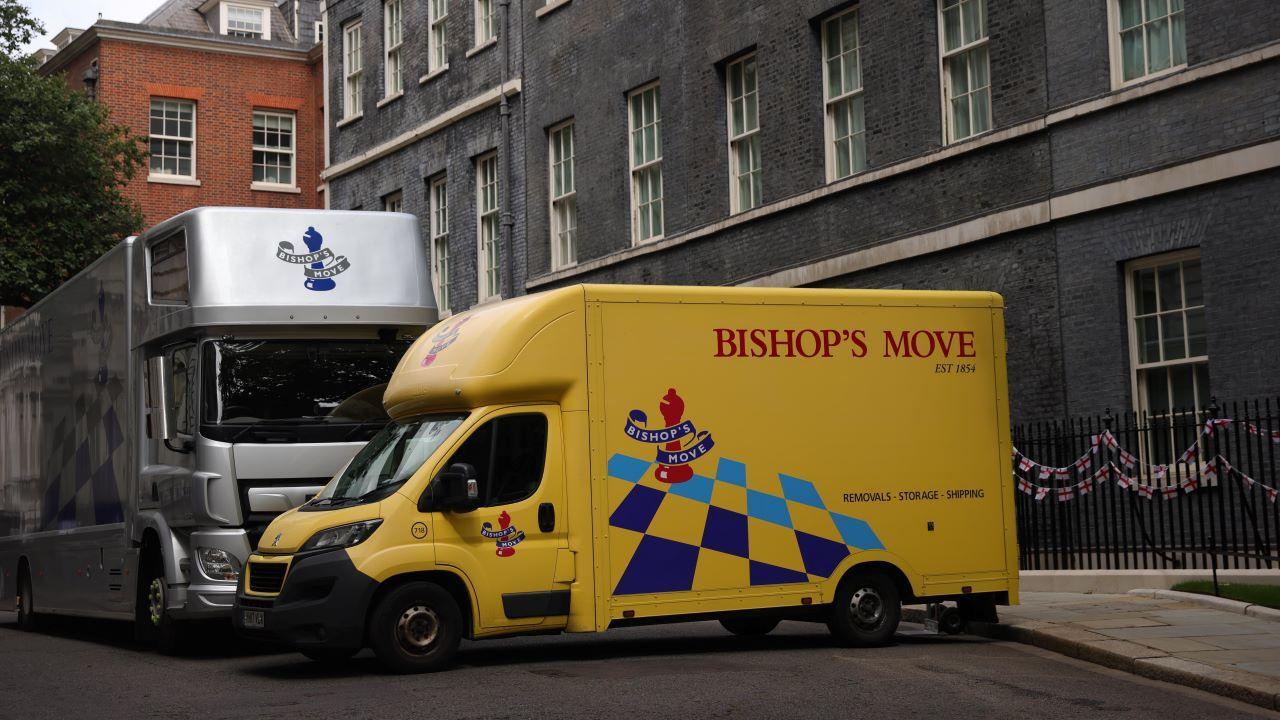
A removal van outside Downing Street on 8 July
Curtains, carpets, coats of paint
Prime ministers can give Downing Street a fresh lick of paint, making use of an annual public grant of £30,000 to carry out renovations.
But Boris Johnson and his wife Carrie were criticised when their extensive revamp of the flat above No 11 cost more than £200,000.
Mr Johnson and his wife wanted to transform the flat from previous Prime Minister Theresa May's "John Lewis furniture nightmare" into a "high society haven", according to the society magazine Tatler.
The work was initially paid for by the Cabinet Office, but £52,000 was given to the Conservative Party by Tory donor Lord Brownlow to cover the bills.
The Electoral Commission fined the Tory party and found it had failed to accurately declare all of Lord Brownlow's donations towards the renovation.
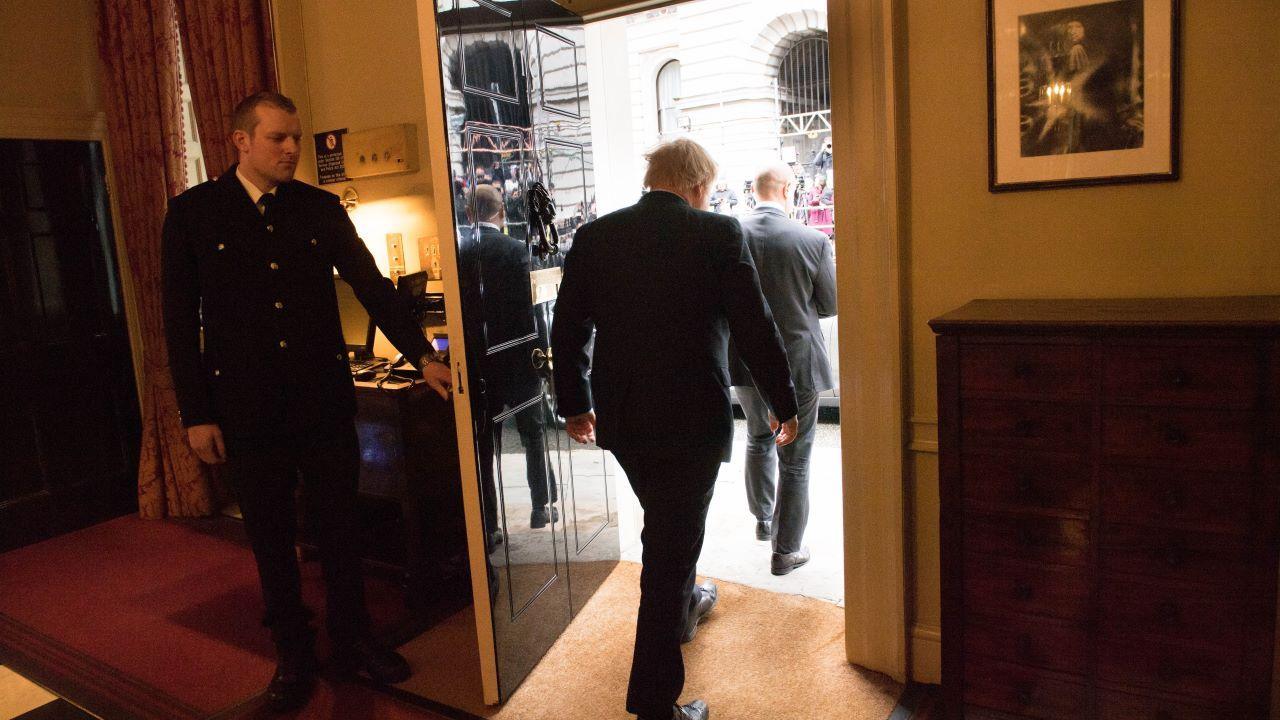
Boris Johnson leaves Downing Street
A political powerhouse and family home
Downing Street will be where Sir Keir conducts his most important duties, such as holding cabinet meetings and welcoming foreign leaders.
But it’s also a family home, hosting birthday parties and space for relaxation.
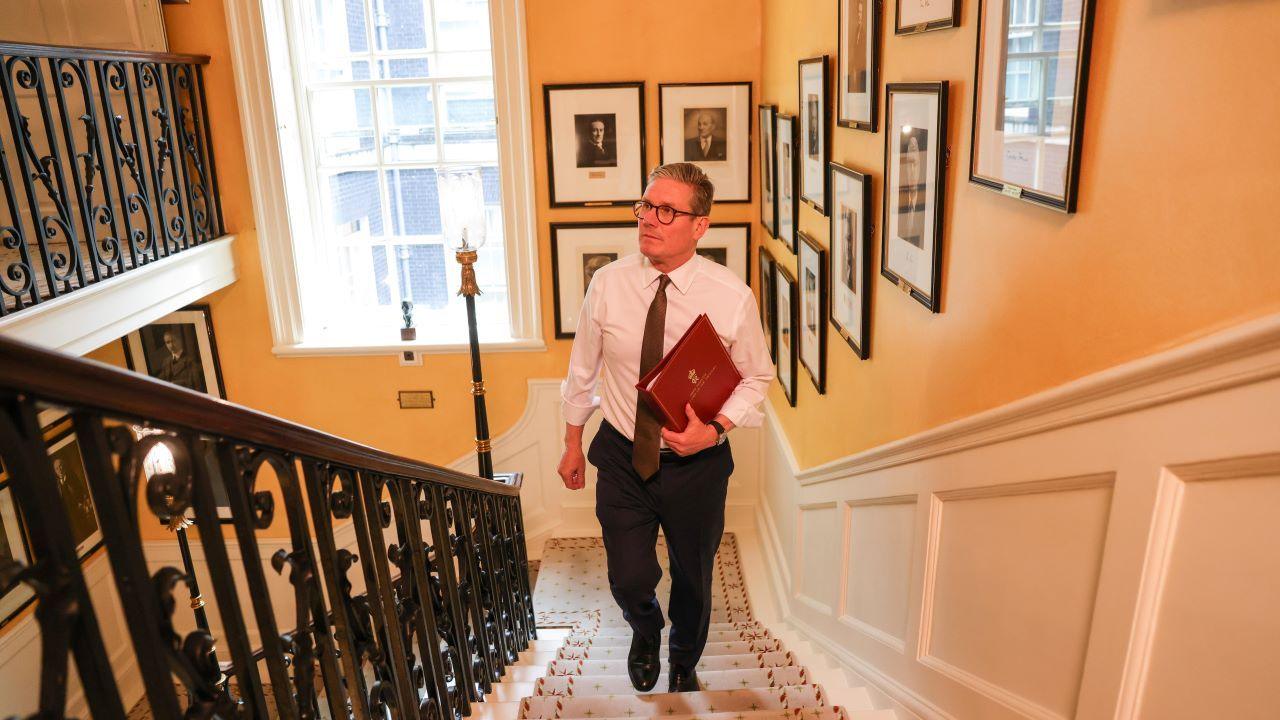
Prime Minister Keir Starmer on the stairs at No 10 Downing Street
It’s a “strange dynamic”, said Jack Brown, a former researcher in residence at No 10.
“It’s both a place of work and family… and it’s important to the prime minister’s premiership that they and their family feel comfortable there.”
The family of Harold Macmillan, Conservative prime minister from 1957 to 1963, reportedly enjoyed their time in Downing Street, although there were strict rules about children riding bikes through the corridor during cabinet meetings.
But former Labour Prime Minister Harold Wilson and his family found “disturbances by officials” difficult. Mary Wilson installed a doorbell in her second-floor rooms to stop civil servants from intruding.
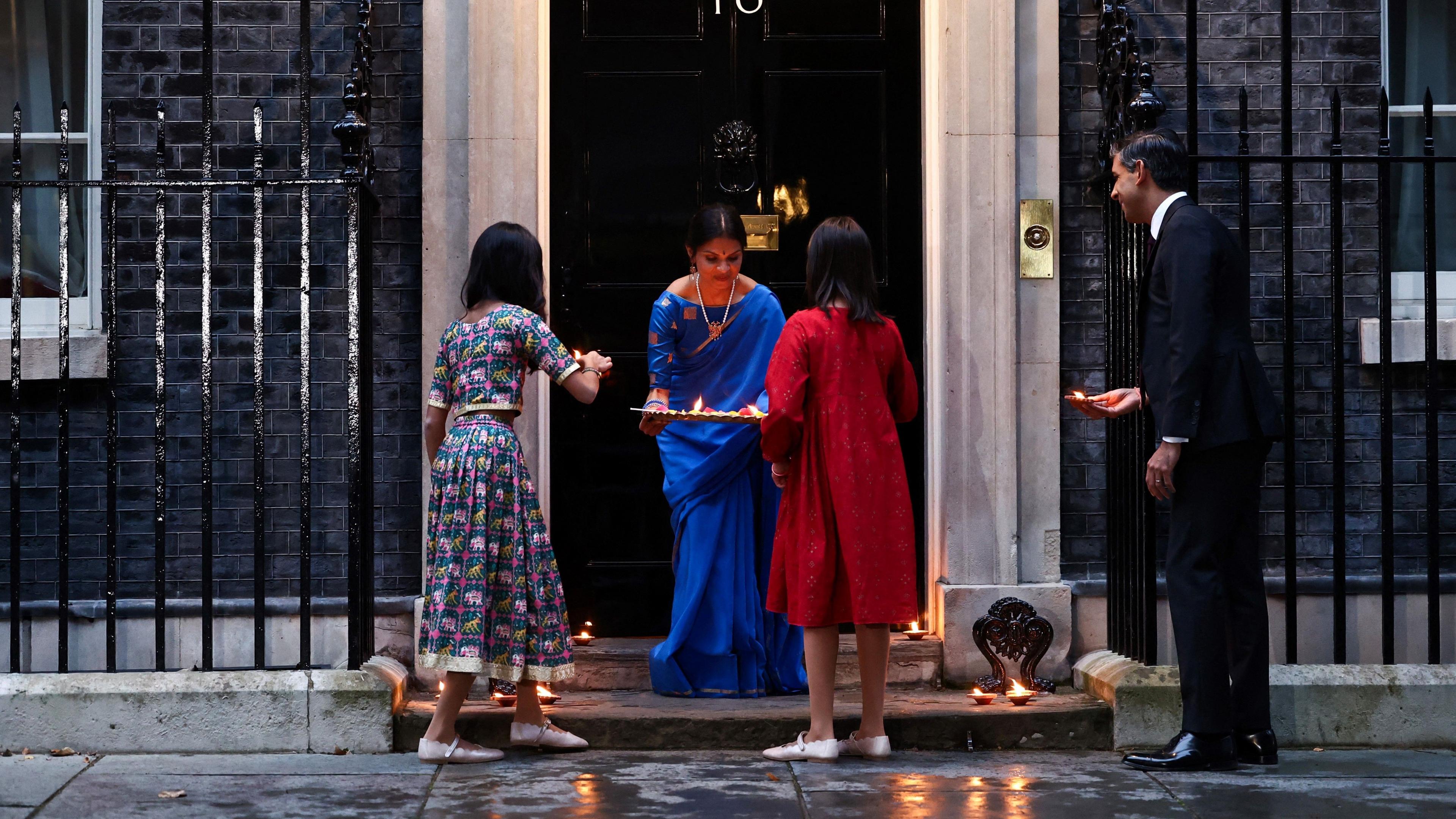
Rishi Sunak with his wife and daughters putting candles outside of No 10 to mark Diwali
Friday nights in the Starmer household are family-first.
“We’ve had a strategy in place - and we’ll try to keep to it - which is to carve out really protected time for the kids,” Sir Keir told Virgin Radio. “So on a Friday - I’ve been doing this for years - I will not do a work-related thing after six o’clock, pretty well come-what-may.”
What these Friday nights entail in the new home will be one of the many choices facing the Starmer household.
They’ll have a lots of boxes to unpack. And one more critical, if quieter, task for the new prime minister: turning the heart of political power into a family home.
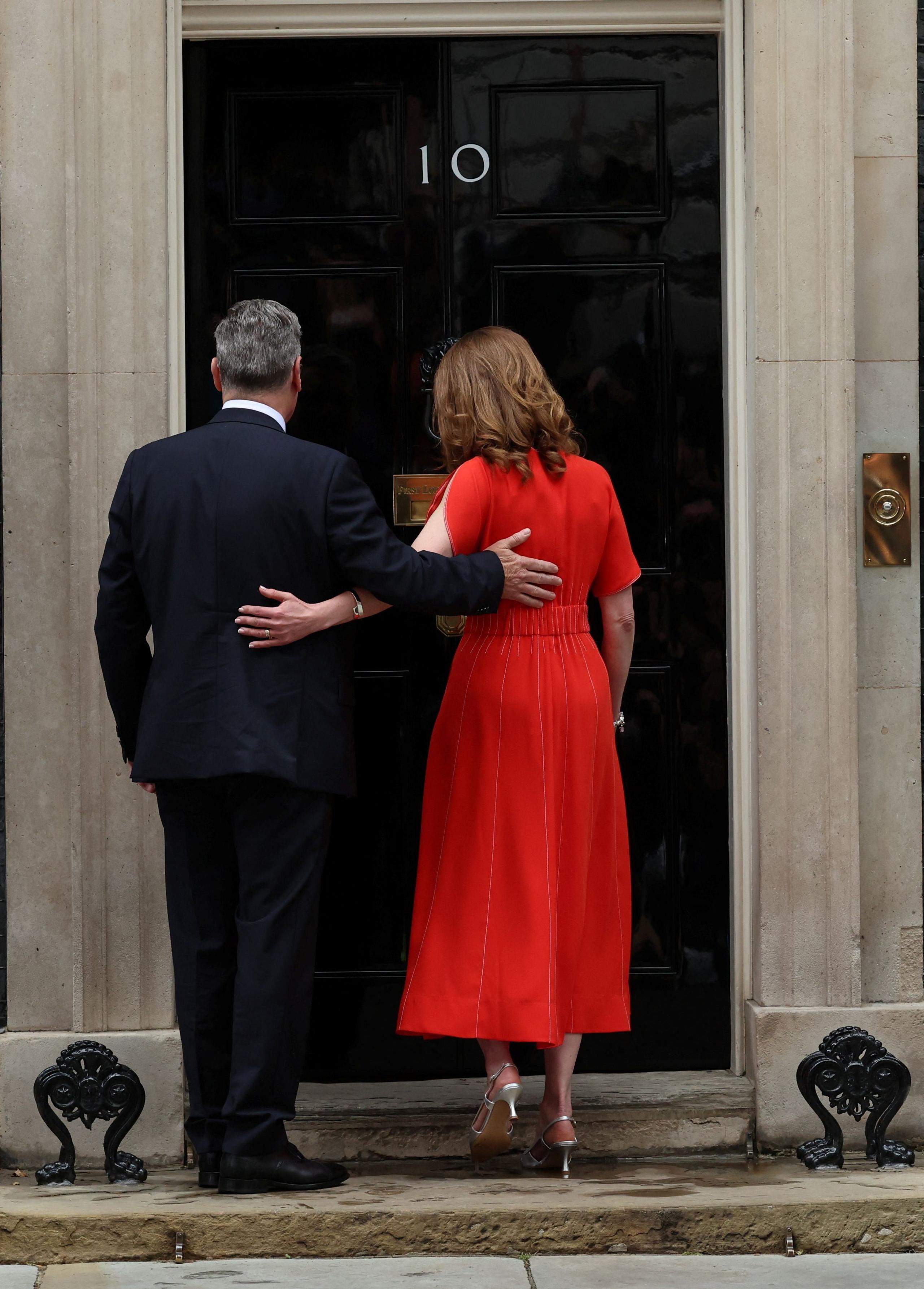
Prime Minister Keir Starmer and his wife Victoria arriving at Number 10
Additional editing and production by Alastair Reid and Tom Finn.
Designs by Jenny Law and Beta Yee.
